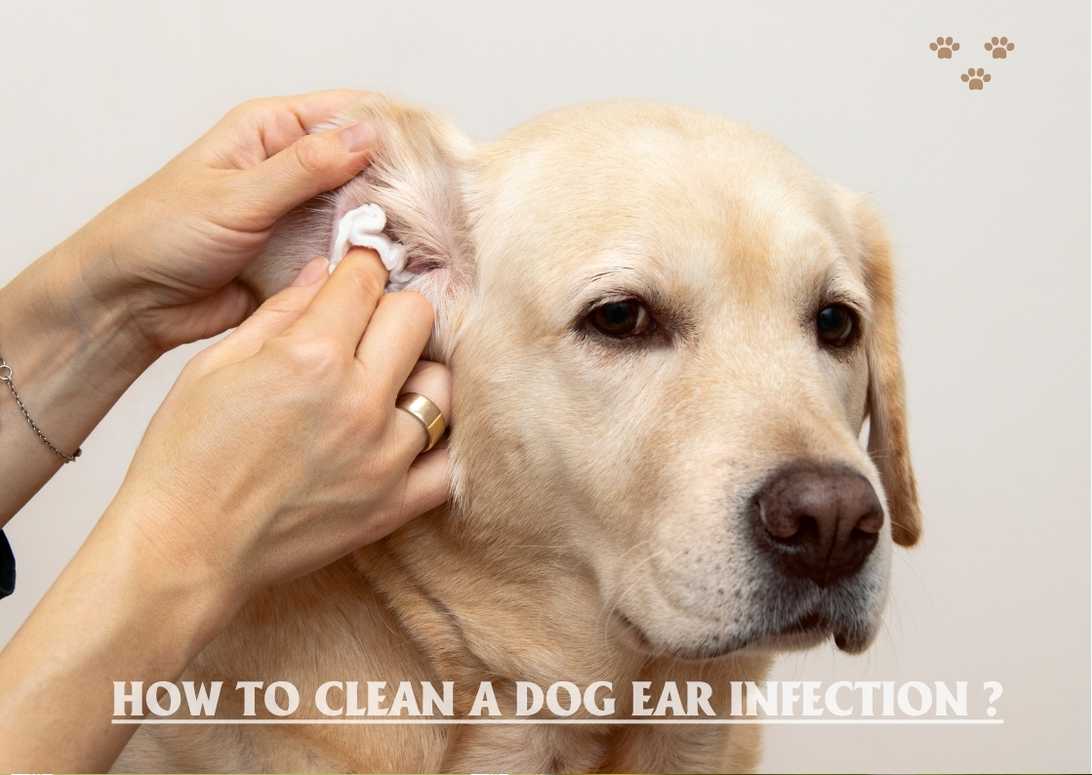What Can I Put On My Dog To Relieve Itching
As a dog owner, there’s nothing worse than seeing our four-legged friends in distress from incessant itching. It’s like they’re wearing an invisible coat of discomfort that we desperately want to remove.
Luckily, there are various effective solutions you can try to provide relief for your furry companion. In this article, we’ll delve into the world of anti-itch remedies for dogs, exploring everything from shampoos and topical treatments to natural oils and herbal remedies.
So let’s roll up our sleeves and uncover the secrets to soothing your pup’s itchiness once and for all.
Identify the Cause of the Itching
You should try to identify the cause of the itching on your dog. Itching can be caused by a variety of factors, including allergies, parasites, skin infections, or underlying medical conditions. To effectively relieve your dog’s itching, it is essential to determine the underlying cause.
The first step in identifying the cause is to observe your dog’s behavior and look for any other symptoms that may accompany the itching. Keep an eye out for redness, swelling, hair loss, or excessive licking or scratching.
If you are unable to pinpoint the cause on your own, it is advisable to seek professional advice from a veterinarian. They have the expertise and knowledge to perform diagnostic tests and help identify any underlying issues causing the itching. Your vet may recommend conducting blood tests or skin scrapings to rule out any potential health concerns.
Identifying the underlying cause of your dog’s itching is crucial as it will guide you in choosing appropriate treatment options. Once you have identified the cause, you can proceed with implementing targeted solutions such as using an anti-itch shampoo or conditioner specifically designed for dogs with sensitive skin or allergies.
Use an Anti-Itch Shampoo or Conditioner
Try using an anti-itch shampoo or conditioner on your furry friend! It can provide relief from itching and discomfort caused by various skin conditions. Here are four reasons why these products are effective:
- Active Ingredients: Anti-itch shampoos and conditioners often contain ingredients like hydrocortisone, aloe vera, or oatmeal that soothe irritated skin and reduce itching.
- Moisturizing Properties: These products typically have moisturizing properties that help hydrate the skin, preventing dryness and further irritation.
- Cleansing Action: Anti-itch shampoos and conditioners not only relieve itchiness but also cleanse the dog’s coat, removing allergens, dirt, and other irritants that may contribute to the itching.
- Easy Application: Using an anti-itch shampoo or conditioner is straightforward. Simply wet your dog’s fur, apply the product according to the instructions, massage it into their coat for a few minutes, then rinse thoroughly.
While anti-itch shampoos and conditioners can provide temporary relief for your dog’s itching, they may not address the root cause of the problem. In the next section about ‘try topical treatments,’ we will explore additional options to alleviate your dog’s discomfort in a more targeted manner without relying solely on home remedies.
Try Topical Treatments
Consider applying topical treatments to address your dog’s itching and discomfort. Topical creams can provide relief by soothing the affected areas and reducing inflammation. Look for creams specifically formulated for dogs, as they are designed to be safe for canine use. These creams often contain ingredients such as hydrocortisone or lidocaine, which can help alleviate itching and promote healing.
In addition to commercial creams, there are also natural remedies that you can try. Aloe vera gel is known for its soothing properties and can be applied topically to relieve itchiness. Chamomile tea bags soaked in warm water can create a calming solution that can be sprayed onto the itchy spots. Another option is oatmeal baths, which have been used for centuries to soothe irritated skin.
When using any topical treatment, it’s important to follow the instructions and avoid overusing them. If your dog’s itching persists or worsens despite these treatments, it may be a sign of an underlying condition that requires veterinary attention.
To further alleviate your dog’s discomfort, you could consider using coconut oil or olive oil on their skin. These oils have moisturizing properties and can help soothe dryness and reduce itchiness.
By utilizing topical creams and natural remedies like aloe vera gel or oatmeal baths, you can help relieve your dog’s itching while promoting their overall well-being without causing harm or discomfort.
Use Coconut Oil or Olive Oil
Using coconut oil or olive oil on your dog’s skin can help moisturize and soothe dryness, reducing itchiness. Coconut oil is known for its numerous benefits, including its antimicrobial and anti-inflammatory properties. When applied topically, it forms a protective barrier on the skin, preventing further irritation and promoting healing. Olive oil, on the other hand, is rich in antioxidants and vitamin E, which can nourish the skin and alleviate itching.
Here are some ways you can use coconut oil or olive oil to relieve your dog’s itching:
- Apply a small amount of coconut or olive oil directly to the affected areas of your dog’s skin. Gently massage it into the skin to ensure even distribution.
- Add a teaspoon of either oil to your dog’s food. This can help improve their overall skin health from within.
- Alternatively, you can mix coconut or olive oil with oatmeal to create a soothing paste. Apply this paste to your dog’s itchy spots for additional relief.
By utilizing these natural oils, you can provide relief for your dog’s itchy skin while also taking advantage of the many benefits they offer.
As we explore herbal remedies next, there are more options available that can further address your dog’s discomfort without resorting to harsh chemicals or medications.
Explore Herbal Remedies
When it comes to exploring herbal remedies for relieving itching in dogs, I’ve found that chamomile or lavender-infused sprays can be quite effective. These sprays can help to soothe irritated skin and reduce inflammation.
In addition, herbal supplements such as nettle or licorice root can provide relief from itching and promote overall skin health.
Chamomile or lavender-infused sprays
You could try applying chamomile or lavender-infused sprays on your dog to relieve itching. Chamomile has been used for centuries due to its numerous benefits, including its anti-inflammatory and soothing properties. It can help calm irritated skin and reduce itching.
Lavender is also known for its calming effects and can promote relaxation in dogs, which may help alleviate the urge to scratch. These herbal remedies are safe and gentle options that can provide relief for your dog’s itchy skin without causing any harmful side effects.
However, if your dog’s itching persists, you may want to consider exploring other herbal supplements like nettle or licorice root that have been shown to have anti-itch properties as well.
Herbal supplements like nettle or licorice root
Consider trying herbal supplements like nettle or licorice root to help alleviate your dog’s itching.
Nettle, also known as stinging nettle, has been used for centuries due to its numerous health benefits. It contains anti-inflammatory properties that can reduce itching and skin irritation in dogs. Nettle is rich in vitamins and minerals that support the immune system and promote healthy skin.
Licorice root, on the other hand, has been traditionally used for its anti-inflammatory and soothing effects. It can help relieve itchiness by reducing inflammation and promoting healing of the skin. Licorice root also has antimicrobial properties that can prevent secondary infections caused by scratching.
Incorporating these herbal supplements into your dog’s diet may provide much-needed relief from itching and discomfort.
Moving forward to consider over-the-counter remedies, there are several options available to address this issue without causing any harm to your furry friend.
Consider Over-the-Counter Remedies
When considering over-the-counter remedies for relieving itching in dogs, two key points to keep in mind are:
- The use of antihistamines for allergies: Antihistamines can help reduce allergic reactions and alleviate symptoms such as itching.
- Omega-3 fatty acid supplements for skin health: Omega-3 fatty acids have been shown to improve skin health and reduce inflammation.
It is important to consult with a veterinarian before administering any over-the-counter remedies to ensure proper dosage and effectiveness for your dog’s specific needs.
Antihistamines for allergies
Try giving your dog antihistamines to help relieve their allergies. Antihistamines for dogs can be a great alternative remedy when it comes to soothing itching caused by allergies.
These medications work by blocking the release of histamine, which is responsible for triggering allergic reactions in the body. Some common antihistamines that are safe for dogs include diphenhydramine (Benadryl), cetirizine (Zyrtec), and loratadine (Claritin).
It’s important to consult with your veterinarian before administering any medication to ensure the correct dosage and suitability for your dog’s specific condition.
While antihistamines can provide relief, they may not completely eliminate the itching. That’s why it’s also beneficial to consider other remedies, such as omega-3 fatty acid supplements for skin health. These supplements can help improve your dog’s overall skin condition and reduce itchiness.
Omega-3 fatty acid supplements for skin health
Omega-3 fatty acid supplements can improve your dog’s overall skin condition and reduce itchiness. These supplements offer a range of benefits for your furry friend.
Here are five reasons why you should consider incorporating omega-3 supplementation into your dog’s diet:
- Reduced inflammation: Omega-3 fatty acids have anti-inflammatory properties that can help alleviate itching caused by allergies or other skin conditions.
- Improved skin barrier function: These supplements support the production of healthy skin cells, leading to a stronger skin barrier that is less prone to irritation.
- Enhanced coat quality: Omega-3s promote healthier hair follicles, resulting in a shinier, thicker coat for your dog.
- Joint health support: In addition to benefiting the skin, omega-3s also provide joint support and can help manage arthritis-related discomfort in dogs.
- Overall well-being: By supporting optimal health, omega-3 fatty acid supplements contribute to your dog’s overall well-being.
Consulting your veterinarian is crucial before starting any new supplement regimen for your dog.
Consult Your Veterinarian
It’s best to consult your veterinarian for advice on relieving your dog’s itching. Your vet will have the expertise and knowledge to determine the underlying cause of your dog’s itchiness and recommend appropriate treatments. There are several consultation options available, including in-person visits or phone consultations.
During the consultation, your vet will likely ask you questions about your dog’s symptoms, medical history, and any recent changes in their environment or diet.
In addition to conventional treatments, your vet may also discuss alternative treatment options for relieving your dog’s itching. These alternative treatments can include natural remedies, such as oatmeal baths or herbal supplements. However, it is important to note that not all alternative treatments are backed by scientific evidence, so it is crucial to consult with your vet before trying anything new.
Your veterinarian will be able to assess the severity of your dog’s itching and provide a tailored treatment plan based on their findings. They may recommend medications, topical creams, dietary changes, or other interventions depending on the underlying cause of the itchiness.
Remember that every dog is unique and what works for one may not work for another. By consulting with your veterinarian, you can ensure that you are taking the most appropriate steps to relieve your dog’s itching and improve their overall skin health.
Frequently Asked Questions
Can I use human anti-itch creams or lotions on my dog?
Using human anti-itch creams on dogs is not recommended. They contain ingredients that can be toxic to dogs. Instead, opt for natural remedies like oatmeal baths or coconut oil, which are safe and effective in relieving itching.
Are there any natural remedies I can use to relieve my dog’s itching?
There are various natural remedies and homemade solutions that can help relieve itching in dogs. These include oatmeal baths, apple cider vinegar rinses, coconut oil applications, and chamomile tea compresses.
How often should I bathe my dog with an anti-itch shampoo?
Regular bathing with an anti-itch shampoo can help relieve itching in dogs. The frequency of using the shampoo depends on your dog’s specific needs and the recommendation of your veterinarian.
Can I use essential oils to soothe my dog’s itchy skin?
Can essential oils be used to soothe a dog’s itchy skin? Are there natural remedies for dog itching? While some essential oils may help, it’s important to consult with a veterinarian before using any on your dog.
What are some common side effects of over-the-counter remedies for dogs?
Common side effects of over-the-counter remedies for dogs can include gastrointestinal upset, allergic reactions, and skin irritations. It’s important to carefully consider the effectiveness of these remedies before using them on your dog.
Conclusion
In conclusion, when it comes to relieving your dog’s itching, there are several options you can consider.
Identifying the cause of the itching is crucial in order to provide targeted relief.
Using anti-itch shampoos or conditioners can help soothe your dog’s irritated skin.
Topical treatments such as creams and sprays can also be effective.
Coconut oil or olive oil can provide natural moisturization and relieve itching.
Herbal remedies may offer additional relief, but consult your vet before using them.
Lastly, over-the-counter remedies should be used with caution and under professional guidance.
Remember to always seek advice from a veterinarian for the best course of action for your furry friend’s specific needs.








